期刊名称:NPJ QUANTUM MATERIALS
|
ISSN: | 2397-4648
|
|
出版频率: | Continuous publication
|
|
出版社: | NATURE PORTFOLIO, HEIDELBERGER PLATZ 3, BERLIN, Germany, 14197
|
|
出版社网址: | https://www.nature.com
|
|
期刊网址: | https://www.nature.com/npjquantmats/
| |
影响因子: | 7.032 |
| 主题范畴: | MATERIALS SCIENCE, MULTIDISCIPLINARY; QUANTUM SCIENCE & TECHNOLOGY; PHYSICS, APPLIED; PHYSICS, CONDENSED MATTER |
| 变更情况: | Newly Added by 2020 |
 期刊简介(About the journal) 期刊简介(About the journal)
 投稿须知(Instructions to Authors) 投稿须知(Instructions to Authors)
 编辑部信息(Editorial Board) 编辑部信息(Editorial Board)
 About the journal About the journal
Aims & Scope
npj Quantum Materials is an open access journal that publishes works that significantly advance the understanding of quantum materials, including their fundamental properties, fabrication and applications.
Research areas specifically covered in the journal include:
- Superconductivity and Superconducting Materials: unconventional superconductors, cuprates, iron-based systems, heavy fermion superconductors, other novel superconductors
- Correlated Electronic Physics and Materials: mott insulators, magnetism in correlated electron systems, colossal magnetoresistance, multiferroicity and multiferroics, quantum phase transitions, theory and numerical methods in correlated electron systems
- Topological Quantum Physics and Materials: topological insulators and topological superconductors, dirac semimetals and weyl semimetals, majorana fermions, magnetic topological insulators, novel topological quantum states, topological heterostructures and devices
- Other Correlated Systems: heavy fermions, non-fermi liquids, quantum critical phenomena, quantum hall effects and fractional quantum hall effects, correlations in artificial quantum structures, Bose-Einstein condensation and superfluidity, ultracold atoms and related systems
- Quantum Phenomena in Advanced Energy Materials: photovoltaic systems, photocatalysis, batteries and fuel cells, thermoelectrics, other advanced energy generation and storage.
- Condensed Matters and Materials Science Issues in Advanced Quantum Technologies: including but not limited to quantum computations, quantum simulations, quantum communications, and quantum sensing among others.
 Instructions to Authors Instructions to Authors
This section will help you when preparing your manuscript for initial submission and resubmission to npj Quantum Materials. Please ensure that you familiarise yourself with our editorial policies as outlined in our Guide for Authors before submitting your work. An overview of key information on submitting primary research is also available in our brief guide to manuscript submission in PDF format.
For information on our aims and scope, as well as our content types, please refer to the About the journal section.
All manuscripts must be submitted electronically through our online submission system, from which you can upload the cover letter and manuscript files (text, figures and supplementary information, including video) and check on the status of your manuscripts during the review process.
Revised manuscripts should be uploaded through the link provided in the editor's decision letter. Please do not submit revisions as new manuscripts.
The authors must include copies of all related manuscripts with any overlap in authorship that are under consideration or in press elsewhere.
Guide for Authors
View our guide for authors for detailed information on editorial criteria, and how manuscripts are handled by our editors between submission and acceptance for publication.
Manuscripts submitted to npj Quantum Materials do not need to adhere to our formatting requirements at the point of initial submission; formatting requirements only apply at the time of acceptance.
 Download Guide for Authors Download Guide for Authors
Guide for Reviewers
View our guide for reviewers for detailed information on policies, workflows and criteria.
Journal Policies
Our editorial and publishing policies are consistent with those of the Nature portfolio journals.
Language Editing
Even though no paper will be rejected for poor language, authors occasionally receive feedback from editors and reviewers regarding language and grammar usage in their manuscripts. You may wish to consider asking a colleague to read your manuscript and/or to use a professional editing service such as those provided by our affiliates Nature Research Editing Service or American Journal Experts. Please note that the use of a language editing service is not a requirement for publication in npj Quantum Materials.
 Editorial Board Editorial Board
Editor-in-Chief
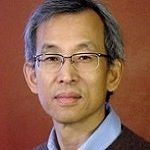 Sang-Wook Cheong, PhD Sang-Wook Cheong, PhD
Dept. of Physics and Astronomy
Rutgers University
NJ, USA
Professor Cheong has made important contributions to the field of enhanced physical functionalities in complex materials originating from collective correlations and collective phase transitions. These include colossal magnetoresistive and colossal magnetoelectric effects in complex oxides, and mesoscopic self-organization in solids, including nanoscale charge stripe formation, mesoscopic electronic phase separation in mixed valent transition metal oxides and the formation of topological vortex domains in multiferroics.
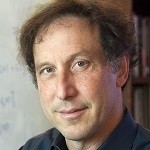
Steven Kivelson, PhD
Dept. of Applied Physics
Stanford University
CA, USA
Professor Kivelson works on understanding the connections between the microscopic properties of electrons and molecules with the macroscopic and collective properties of materials, such as high-temperature superconductivity, quantum magnetism, quantum Hall effects and electronic liquid crystalline phases of matter. His current areas of focus include the theory of quantum liquid crystalline phases of highly correlated electronic fluids, the intertwined orders and the theory of high temperature superconductivity, the theory of spin liquids and other fractionalized quantum phases and the theory of the glass transition in super cool liquids.
Deputy Editor
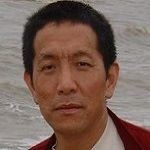 Jun-Ming Liu, PhD Jun-Ming Liu, PhD
State Key Laboratory of Solid State Microstructures
Nanjing University
Jiangsu, China
Professor Liu received his doctorate of materials science from Northwestern Polytechnic University in 1989, and then joined Nanjing University as a post-doctor where he was an associate professor of physics from 1992 and a full professor of physics in 1999. He has made seminal contributions to the synthesis and characterization of multiferroic materials and other complex transition metal oxides, and to the understanding of physics of rare-earth manganites with multiferroicity and colossal magnetoresistance. His current research of focus includes the physics of ferroelectrics, magnetoelectric coupling in multiferroic systems and statistical physics.
Associate Editors
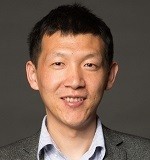 Shuai Dong, PhD Shuai Dong, PhD
Professor, School of Physics
Southeast University
Nanjing, China
Professor Dong received his PhD from Nanjing University in 2009, and subsequently worked at the University of Tennessee at Knoxville and Oak Ridge National Laboratory. His research interest lies in the physics of correlated electronic materials and their artificial structures, in particular those with ferroic orders. His research experiences are mainly computational but also deeply involved in experiments. Currently, he is a Changjiang Junior Scholar awarded by Ministry of Education of China.
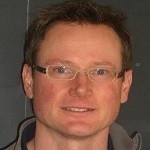 Carsten Honerkamp, PhD Carsten Honerkamp, PhD
Institut für Theoretische Festkörperphysik
Aachen University
Aachen, Germany
Professor Honerkamp has authored many works on the development of the functional renormalization group method for fermions. Moreover, he has applied this and other many-body methods to investigate low-temperature quantum phases and the possibility for novel ground states in many important models for correlated electrons and material systems, including two-dimensional Hubbard models and its SU(N) variants, strontium ruthentates and iron pnictides and graphene-based systems.
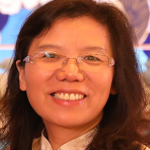 Rongying Jin, PhD Rongying Jin, PhD
Dept. of Physics and Astronomy
University of South Carolina
SC, USA
Professor Jin is an experimental condensed matter physicist. She received her PhD from ETH Zurich in 1997. After post-doctoral research at Penn State University (1997-2000), she was a research staff scientist at Oak Ridge National Laboratory from 2000 to 2008. She joined Louisiana State University as an Associate Professor in 2009, then a full professor since 2012. Since August 2021, she became a SmartState Endowed Chair Professor and Director of Center for Experimental Nanoscale Physics at the University of South Carolina. Her expertise lies in novel quantum materials design and synthesis, single crystal growth, electrical, magnetic, and thermal properties measurements. The combined efforts enable her to discover new quantum phenomena in new materials such as unconventional superconductivity, unusual magnetism, and topologically protected phases.
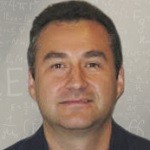
Sergey Savrasov, PhD
Dept. of Physics
UC Davis
CA, USA
Professor Savrasov was appointed as an Assistant Professor at the New Jersey Institute of Technology in 2001, as Associate Professor in UC Davis in 2005, and then Professor in 2008. Professor Savrasov pioneered implementation of full potential methods for electronic structure calculations, linear response lattice dynamics and the combination of density functional and dynamical mean field theories for the study of the Mott transition problem in actinides materials. His recent interests also include topological insulators and newly proposed Weyl semimetals systems.
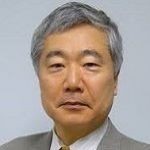 Takashi Takahashi, PhD Takashi Takahashi, PhD
Advanced Inst. for Materials Research
Tohoku University
Tohoku, Japan
Professor Takahashi has studied a variety of materials by angle-resolved photoemission spectroscopy, including cuprate high-Tc superconductors, Fe-based superconductors, MgB2 and related materials, graphite, graphite intercalation compounds, fullerenes, heavy-fermion materials, Kondo insulators, one-dimensional organic conductors and ladder and chain compounds. His current research focuses on topological insulators and related materials, graphene, transition-metal dichalcogenides and atomically thin Fe-based superconductors.
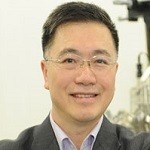
Hai-Hu Wen, PhD
Center for Superconducting Physics and Materials
Nanjing University
Jiangsu, China
Professor Wen is a full Professor of Physics at Nanjing University. His academic interests cover the exploration of new superconductors and the study of correlated electronic materials, pairing mechanisms in unconventional superconductors, vortex physics and other topics. He was the Director of the National Laboratory for Superconductivity of China (2000-2009) and the principal investigator and coordinator of the National Project on Fundamental Research of Superconductivity of China from 2005-2015.
Editorial Board Members
Charles Ahn, Yale University, USA
Fakher F. Assaad, Universität Würzburg, Germany
Bernd Büchner, The Leibniz Institute for Solid State and Materials Research Dresden, Germany
Anton Burkov, University of Waterloo, Canada
Erica W. Carlson, Purdue University, USA
Laurent Chapon, Diamond Light Source, United Kingdom
Xianhui Chen, University of Science and Technology of China, China
Ulrike Diebold, TU Wien, Austria
Donglai Feng, Fudan University, China
Liang Fu, Massachusetts Institute of Technology, USA
Peter Hirschfeld, University of Florida, USA
Jinfeng Jia, Shanghai Jiaotong University, China
Catherine Kallin, McMaster University, Canada
Tsuyoshi Kimura, University of Tokyo, Japan
Vidya Madhavan, University of Illinois at Urbana-Champaign, USA
Igor Mazin, Naval Research Laboratory, USA
Maxim Mostovoy, University of Groningen, Netherlands
Janice L. Musfeldt, University of Tennessee, USA
Cewen Nan, Tsinghua University, China
Beatriz Noheda, University of Groningen, Netherlands
Paolo Radaelli, University of Oxford, United Kingdom
Zhifeng Ren, University of Houston, USA
Jean-Marc Triscone, University of Geneva, Switzerland
Min Xiao, University of Arkansas, USA
Xincheng Xie, Peking University, China
Qikun Xue, Tsinghua University, China
Yang Yang, University of California, Los Angeles, USA
Han Woong Yeom, POSTECH, Korea
Seiji Yunoki, RIKEN, Japan
Vivien Zapf, The National High Magnetic Field Laboratory, USA
Fuchun Zhang, Zhejiang University, China
Shining Zhu, Nanjing University, China
|





